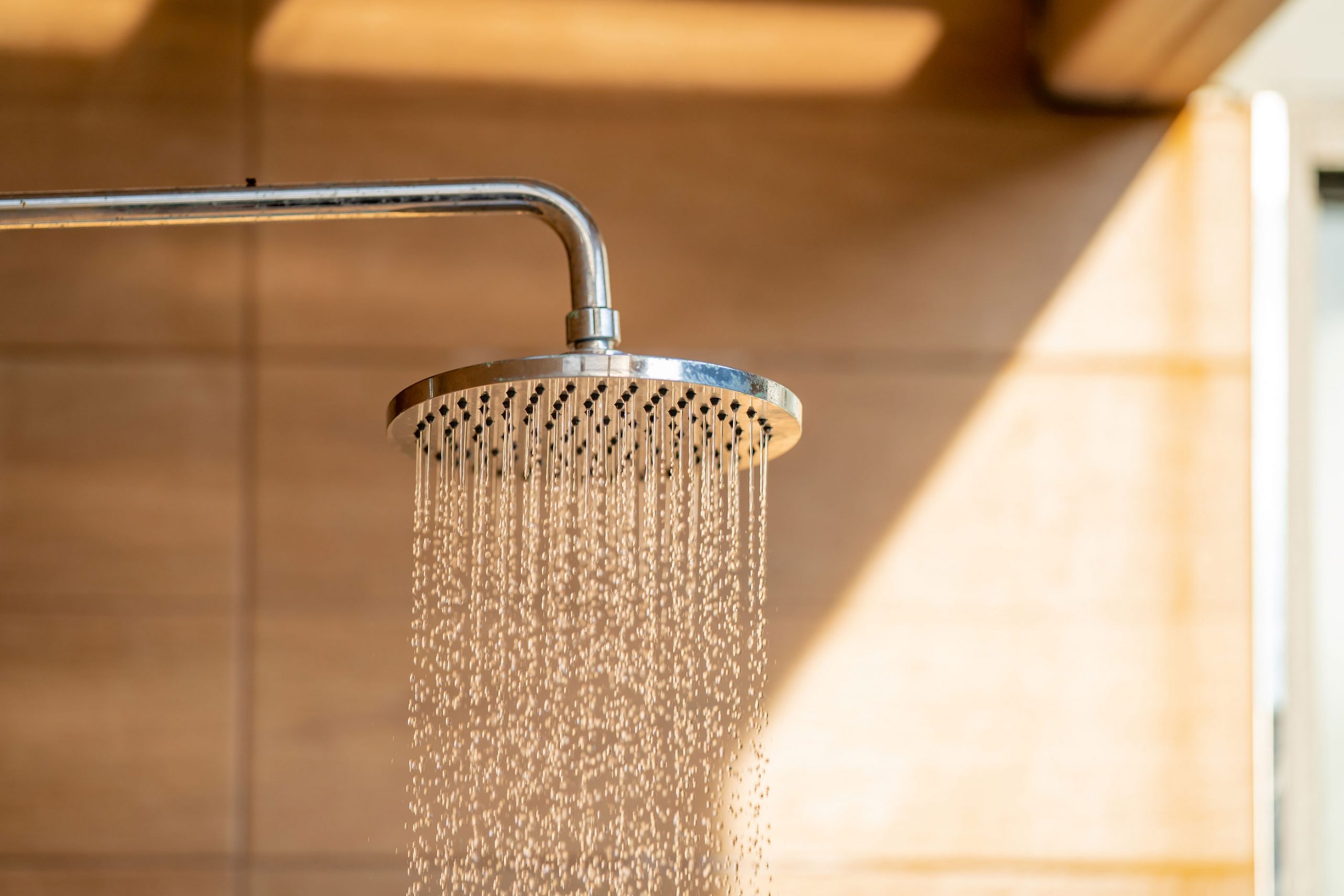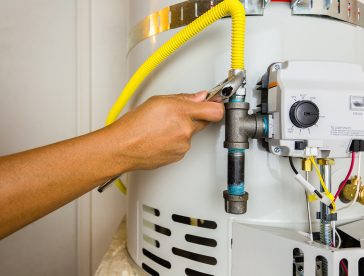
Common Water Heater Problems: Troubleshooting and Solutions
Water heater problems got you down? You’re in the right place.
Water heaters are essential heroes in our homes, providing the comfort of hot showers, the convenience of warm water for washing dishes, and the essential hot water needed for various household tasks. Despite their crucial role, water heaters are often ignored until a problem arises.
We’re here to walk you through the most common water heater problems we see as plumbers. With this guide, you’ll learn that many water heater problems are not only identifiable but also solvable with some straightforward troubleshooting techniques.
Identifying Common Water Heater Problems
- Lack of Hot Water
This is perhaps the most straightforward and noticeable problem: you turn on the tap, and the water remains cold. Several issues could be the culprit. For electric heaters, it might be a malfunctioning heating element or a tripped circuit breaker. In gas heaters, it could be as simple as the pilot light being out or as complex as a faulty gas valve. A broken thermostat is another common cause, regardless of the type of heater.
- Water Temperature Issues
When water is too hot or not hot enough, the issue often lies in the thermostat settings. It’s advisable to check whether the thermostat is set at a desired temperature. For water that’s too hot, it might be due to a malfunctioning thermostat not accurately gauging the water temperature.
Insufficient heating, on the other hand, can be due to a variety of issues, including a faulty heating element (in electric heaters), a clogged burner (in gas heaters), or simply a heater that’s too small for your needs.
- Strange Noises
A variety of noises can emanate from your water heater, and each type can indicate different issues. Popping or knocking sounds often suggest sediment buildup at the bottom of the tank, which can overheat and produce these noises. Hissing or sizzling noises might be due to a leak where water is dripping onto hot surfaces. Investigating these sounds promptly is important as they can lead to more significant problems.
- Leaks
Water leaks can occur at various points of the water heater. Common areas include the top and bottom of the unit, around the pressure relief valve, or at the water inlet and outlet connections. Leaks can be due to loose connections, corrosion, a stuck valve, or even a crack in the water tank. Identifying the location of the leak is crucial in determining the cause and the appropriate fix.
- Discolored or Smelly Water
If your hot water is rusty, brown, or has an unpleasant odor, it could be due to corrosion inside your water heater or the pipes. The presence of bacteria within the tank can also cause foul-smelling water. Regular maintenance, including flushing the tank to remove sediment and replacing the anode rod that helps prevent corrosion, can often resolve these issues.
Understanding these common problems is the first step in troubleshooting and maintaining your water heater. Recognizing the signs can help you determine whether a simple fix is possible or if professional assistance is needed.

Basic Troubleshooting Steps You Can Do At Home
Checking Power Sources
- For Electric Heaters: Ensure that your heater is plugged in and the circuit breaker has not tripped. If the breaker has tripped, reset it. If it trips again, it could indicate a more serious electrical issue.
- For Gas Heaters: Check that the gas valve is open and the pilot light is lit. If the pilot light is out, follow your heater’s manual for instructions on how to relight it. If it doesn’t stay lit, the issue could be with the thermocouple or gas supply.
Inspecting the Thermostat
Most water heaters have a thermostat behind an access panel. Before checking, ensure the power is turned off for safety. Once accessed, check if the thermostat is set to the desired temperature. If you suspect the thermostat is faulty, it can be tested with a multimeter. However, adjusting or replacing a thermostat can be complicated, and you might need a professional if you’re not comfortable with these steps.
Examining the Heating Element
This applies to electric water heaters. After ensuring the power is off and the water supply is shut, drain the tank partially to access the heating elements. Inspect for signs of burning or damage. A multimeter can be used to check for continuity. If there’s no continuity, the element needs replacing. Be sure to replace it with one of the same voltage and wattage.
Pressure Relief Valve Check
The pressure relief valve is a critical safety feature on your water heater. To test it, place a bucket under the discharge pipe and lift the valve’s lever. You should hear a slight rush of air or see some water and vapor exit through the valve. If not, the valve may need replacing. Remember, if the valve releases water under normal operating conditions, it’s typically a sign of excessive pressure or temperature inside the tank and requires professional attention.
Flushing the Tank
Sediment buildup can cause many common water heater problems. To flush the tank:
- Turn off the power source (electricity or gas) and the cold water supply to the heater.
- Connect a garden hose to the drain valve at the bottom of the tank and run it to a drain.
- Open a hot water tap elsewhere in your home to allow air into the system.
- Open the drain valve and let the water flow until it runs clear (this could take a few minutes to an hour).
- Close the drain valve, disconnect the hose, turn the water supply back on, and then the power source.
These basic troubleshooting steps can resolve many common issues and are a good first step in water heater maintenance. However, if you’re unsure or uncomfortable performing any of these tasks, it’s always wise to contact a professional.
When to Call a Professional
Recognizing Complex Issues
While basic troubleshooting can resolve many water heater issues, some problems require professional expertise. Complex issues like gas leaks, consistent overheating, recurrent tripping of the circuit breaker, or persistent noises despite sediment flushing indicate deeper problems. If your water heater shows signs of these issues or if the same problem keeps recurring despite your troubleshooting efforts, it’s time to call a professional. Experts can diagnose and fix intricate problems that might not be safe or feasible for DIY repairs.
Safety Concerns
Safety is paramount when dealing with water heaters, especially since they involve electricity, gas, and high-pressure systems. If you smell gas (a sulfur or rotten egg smell) near your gas water heater, do not attempt to fix it yourself. Immediately evacuate the area and call a professional from a safe distance.
Similarly, if you’re unsure about dealing with electrical components, it’s best to avoid risking electric shock or causing an electrical short. Water heaters also operate under high pressure, so tampering with certain components like pressure relief valves without proper knowledge can be hazardous.
Maintaining Warranty
DIY repairs can sometimes void the warranty of your water heater. Most manufacturers have specific clauses regarding who can perform repairs. Unauthorized repairs or using non-standard parts might not only void your warranty but also lead to more significant issues down the line.
Before undertaking any repairs, check your water heater’s warranty terms. If the heater is still under warranty, it’s often more beneficial, both financially and in terms of long-term functionality, to have a professional perform the repairs.
While many water heater problems can be resolved with DIY methods, understanding when to call a professional is crucial. A licensed plumber or certified technician will have the skills, tools, and knowledge to safely and effectively address your water heater issues.
Preventative Maintenance Tips
Regular Inspections
Conduct a basic inspection every six months.
What to Check:
- Look for leaks or corrosion around valves, pipes, and the tank.
- Test the pressure relief valve for proper operation.
- For gas heaters, inspect the burner for a blue flame with yellow tips.
- Verify thermostat settings for consistency.
Routine Cleaning and Flushing
Flush the tank every six months to a year.
Steps for Flushing:
- Turn off the power source.
- Connect a hose to the drain valve and run until water is clear.
Cleaning Tips:
- Consider using a water softener or scale inhibitor, especially in areas with hard water.
Anode Rod Replacement
Check the anode rod every two years.
Replacement Indicators:
- Replace if over 6 inches of the core steel wire is exposed.
- Replace if there’s extensive calcium coating.
General Lifespan: Typically lasts about 4 to 5 years, varying with water conditions and usage.
Insulating Older Units:
Benefits:
- Reduces standby heat loss by 25-45%.
- Saves about 4-9% in water heating costs.
Insulation Tips:
- Use an insulation blanket specifically designed for water heaters.
- Avoid covering the top on gas units, the thermostat, or the burner compartment.
- Insulate hot water pipes to raise water temperature at the tap and reduce heat loss.
Incorporating these preventative maintenance practices can significantly enhance the efficiency, safety, and longevity of your water heater, ensuring it continues to function optimally and reliably.
In summary, understanding and maintaining your water heater is key to ensuring its efficiency and longevity. Regular self-maintenance can prevent many issues, but recognizing when to seek professional help is equally important for complex or hazardous situations. By combining DIY care with expert assistance when needed, you can ensure your water heater remains a reliable and efficient part of your home. Remember, a little preventative care goes a long way in the smooth operation of your water heater.
If you’re facing water heater challenges beyond DIY solutions, or if you prefer the assurance of professional service, Landa Plumbing is here to help. Our team of experienced technicians can provide comprehensive water heater services, from routine maintenance to complex repairs. Trust us to ensure your water heater remains in optimal condition.
Contact Landa Plumbing today for expert advice, service, and peace of mind with all your water heater needs.

